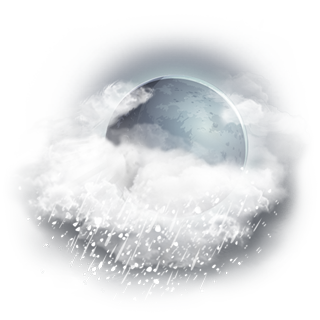I picked up “Cognitive-Behavioral Therapy” for the same reason I pick up most books—its cover looked pretty. The book is only slightly larger than my palm and boasts a hot pink cover with a scribbled-on rat. I assumed it was a book about neuroscience or weird psych cases, but instead it was the “poetry” of a pretentious NYU graduate, Tao Lin.
I say “poetry” with slight hesitancy though. I’d never heard of Tao Lin before but a quick Wikipedia search reveals that he has won a couple of small writing awards and has published another book of poetry as well as three other novels. On the other hand, his poetry reads more like the poetry that we find in a notebook in our attic back from our self-loathing middle school days. His interests are so closely aligned with my own, though, that I just had to buy the book.
The poems are essentially about the same crises that every 20-something year old goes through. What am I doing with my life? Does my existence really matter? Will I ever find love or does love even exist? Lin also seems to appeal to our generation, or more specifically myself, in really awful ways. In fact, his poetry has been described as “narcissentialism” because it’s so self-absorbed.
Everything about this small book is formatted exactly as how I would have formatted it. From the cover to the font to the lack of punctuation—a sort of bastardized e.e. cummings. When I picked up the book, I couldn’t help but feel that I was really related to this guy, whoever he was. When I read through his poems, I felt that I would have a similar feeling as when I read “Catcher in the Rye.” How could I not when the first poem in “Cognitive-Behavioral Therapy” is titled “i will learn how to love a person and then i will teach you and then we will know”?
Poetry has always been a kind of lost form to me. I could read a poem and interpret it in a hundred different ways depending on whatever crisis I was having during that hour and say, “Well, that was a good read.” But I have never read a poem that hits home the first time I read through it as this one did. The only times I’ve ever felt a great connection to a form of art are when I hear a really great song for the first time, like a good Modest Mouse song. Reading through Lin’s poems though, I feel that he is actually the voice of our generation. It’s a lousy feeling knowing that I connect to him this much. His poetry is unlike Auden’s or Yeats’—it’s about writing e-mails, shopping on Amazon or stealing baguettes from Whole Foods. One of his novels is actually titled “Shoplifting from American Apparel.” He talks about masturbation bluntly and also bizarrely. One line from the poem “eleven page poem, page six” reads: “my heart feels like a medium-erect penis wrapped in saran wrap … / now i have to go do something to my penis”
Even just writing this review about his poetry, I really hate Lin and his poetry and can’t help but feel like he’s writing about first world problems. There is also that once-in-a-while line that makes the whole thing worth it. One of my favorite portions of “eleven page poem, page six” reads, “as a teenager i experience existential despair as an unsexy sensation / of repressed orgasm in the chest; today i experience existential despair / as a distinct sensation of wanting to lecture you / on how i am better than you, without crushing your hopes and dreams.” Lin is essentially describing himself as a jerk, but who hasn’t felt that way five times over?
Our generation is a strange group of kids in that we’re supposed to be indifferent about most things and, if we aren’t, we’re viewed as a “try-hard.” This would explain why we find vague occupations like “being in a band” or “writer” or “artist” as really attractive in a person. This has led us to be increasingly more self-conscious on so many levels not just when we’re doing the “right” thing, but also when we’re trying so hard to be doing the right thing. It all gets pretty confusing.
We are all aware of “hipsters” and think they’re trendy. Or at least I think so and would like to think that others do too. But being a “hipster” is viewed negatively because that means you’re trying too hard to be a certain thing or a certain type of person. I’m still not sure what being a hipster is or means but I find a lot of things related to hipsters appealing. I would even go so far as throwing “Cognitive-Behavioral Therapy” out as “hipster garbage.”
The only reason I can recommend “Cognitive-Behavioral Therapy” despite its incredibly pompous writing is the way that Lin talks about himself. In his writing, he realizes that our generation is incredibly self-conscious but not self-aware at all. He notices that we have the capacity to watch the news but are more likely to go onto Facebook and that anything mildly “noble” that is done is accomplished in a self-appreciating way. In short, this book is both enjoyable and horrifying because it reminds me of myself.


